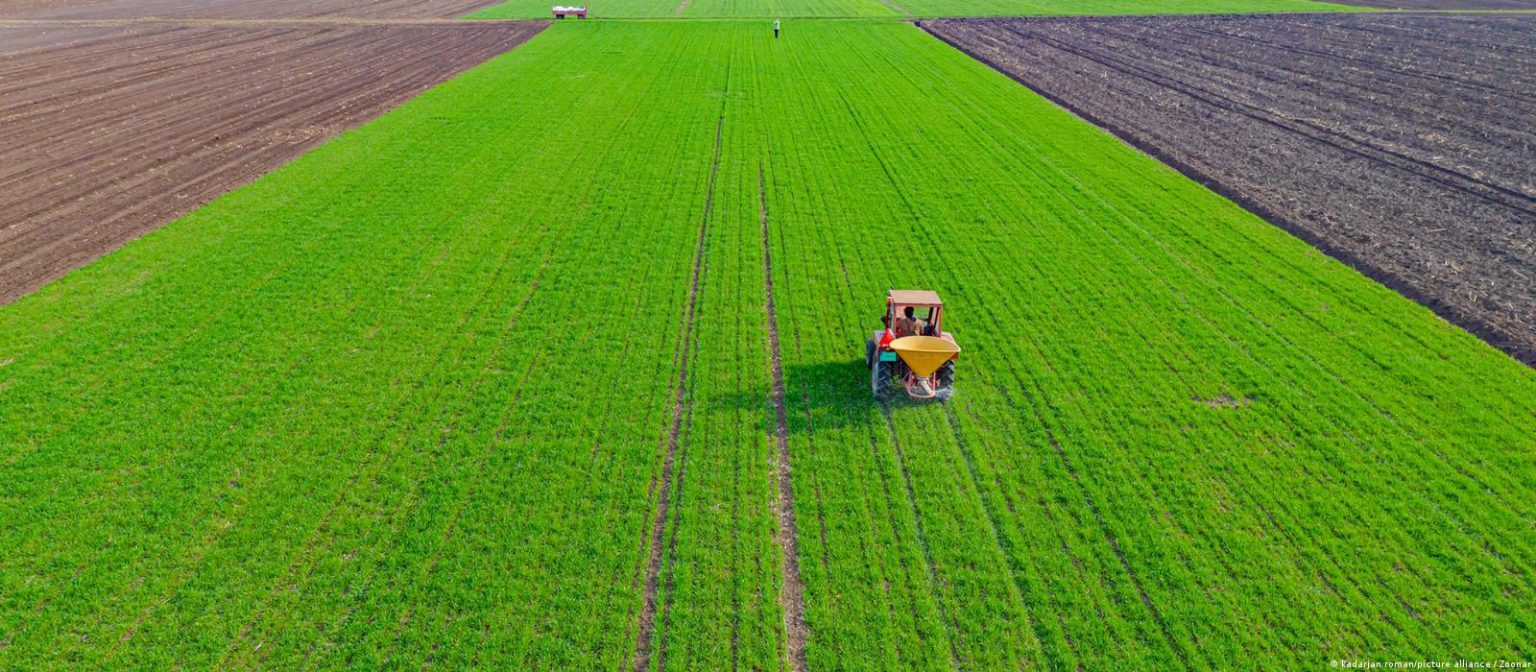Nigeria, with its vast potentials, is undergoing a transformative phase in its agriculture sector, marked by innovative approaches and emerging trends. This evolution is vital for the nation’s economic development, food security, and poverty alleviation. As various stakeholders work collaboratively to address challenges facing the sector, the adoption of modern technologies and innovative practices is shaping the future of Nigerian agriculture in a number of ways, viz:
Precision farming technologies
Authors like Smith et al (2019) stress the significance of precision farming technologies in increasing agricultural productivity. Precision farming involves using satellite imagery and sensors to optimise crop yields, reduce waste, and enhance resource efficiency.
Digital agriculture platforms
Researchers such as Johnson and Ahmed (2020) highlight the impact of digital agriculture platforms in Nigeria. These platforms leverage data analytics, artificial intelligence, and mobile technologies to provide farmers with real-time information on weather patterns, market prices, and best agricultural practices.
Climate-smart agriculture
Adams and Okonkwo (2018) discuss climate-smart agriculture as a key strategy for sustainable farming in Nigeria. This approach incorporates climate-resilient crops, efficient water management, and conservation practices to mitigate the impact of climate change on agriculture.
Youth involvement in agriculture
The involvement of youths in agriculture is a recurring theme in the works of Ogunlela et al (2021). Engaging the younger generation in agribusiness, through training programmes and incentives, is crucial for injecting vitality and innovations into the sector.
Agroecology and sustainable practices
Authors like Ibeun et al (2017) underscore the importance of agroecology and sustainable farming practices. These methods focus on enhancing biodiversity, soil health, and ecosystem services, promoting resilience and long-term productivity.
Government policies and agricultural transformation
Government policies play a pivotal role in shaping the agricultural landscape. As explored by Adebayo and Salami (2019), policy initiatives that prioritise investment in infrastructure, research and extension services can drive positive change.
Financial inclusion and access to credit
The works of Nmadu et al (2022) emphasise the role of financial inclusion and access to credit in supporting smallholder farmers. Microfinance initiatives and digital payment systems contribute to empowering farmers and fostering economic growth.
Value chain development
Authors like Eboh et al (2018) focus on the importance of developing robust agricultural value chains. Strengthening linkages between farmers, processors, distributors, and retailers enhances efficiency, reduces post-harvest losses, and ensures fair returns for all stakeholders.
Biotechnology and genetically modified organisms (GMOs)
Biotechnology, including the use of genetically modified organisms (GMOs), is a subject of debate in Nigerian agriculture. Research by Akintoye et al (2020) delves into the potential benefits and concerns associated with adopting biotechnological solutions for improved crop varieties.
Extension services and farmer education
Effective extension services and farmer education are crucial for disseminating knowledge and best practices. The works of Adu et al (2016) stress the need for continuous learning and skill development among farmers to enhance their productivity and resilience.
Market-oriented farming
Market-oriented farming, as discussed by Adewuyi and Olagunju (2019), involves aligning agricultural production with market demands. Understanding consumer preferences and market dynamics empowers farmers to make informed decisions and increase their competitiveness.
E-commerce platforms for agricultural products
The emergence of electronic commerce platforms dedicated to agricultural products is explored by authors like Mohammed and Bala (2021). These platforms facilitate direct market access for farmers, reducing dependence on traditional distribution channels and improving profitability.
Biological pest control and integrated pest management (IPM)
In addressing pest challenges, biological pest control and integrated pest management (IPM) are gaining prominence. The research by Lawal et al (2018) highlights the importance of environmentally-friendly methods to control pests and diseases sustainably.
Organic farming practices
The promotion of organic farming practices is essential for health-conscious consumers and environmentally-sustainable agriculture. Authors like Yusuf et al (2019) delve into the benefits and challenges of transitioning to organic farming methods.
International collaboration and partnerships
International collaboration and partnerships are crucial for bringing global expertise and resources to Nigerian agriculture. As discussed by Adeyemo and Oyeyinka (2020), collaboration with international organisations, research institutions, and donor agencies can catalyze positive changes in the sector.
Conclusion
In conclusion, revolutionising of Nigerian agriculture, through innovations and emerging trends, is multifaceted. From technological advancements to sustainable practices and market-oriented approaches, the agricultural landscape is evolving to meet the challenges of the 21st century. It is imperative for policymakers, researchers, farmers, and other stakeholders to collaborate effectively, leveraging the collective wisdom and insights provided by these authors to ensure a resilient, productive, and sustainable future for Nigerian agriculture.



